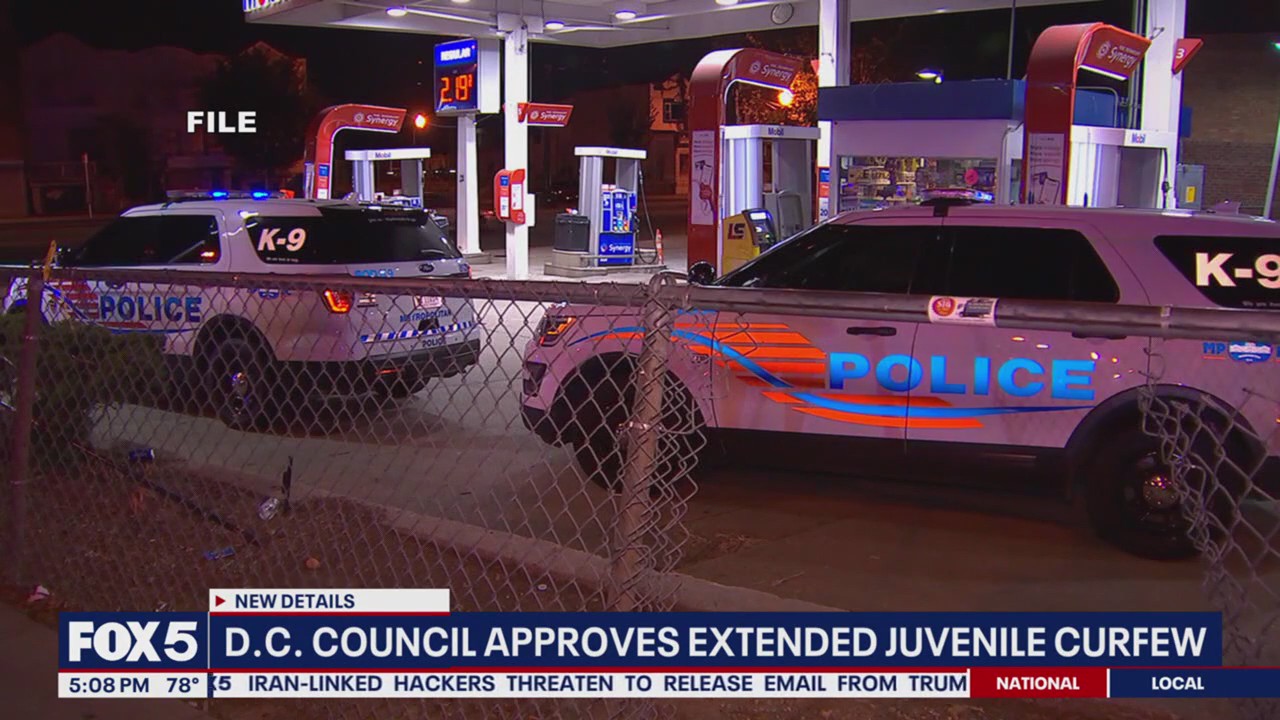DC Council approves legislation to extend citywide juvenile curfew

DC Council approves extended juvenile curfew
The D.C. Council took on multiple pieces of public safety legislation at their Tuesday meeting. They unanimously passed Peace D.C.--council member Brooke Pinto’s plan to recruit and retain officers and bolster violence interruption programs. They also passed an emergency juvenile curfew for the summer. FOX 5’s David Kaplan was at the meeting.
WASHINGTON - The D.C. Council took on multiple pieces of public safety legislation at their Tuesday meeting.
They unanimously passed Peace D.C., which is council member Brooke Pinto’s plan to recruit and retain officers and bolster violence interruption programs.
They also passed an emergency juvenile curfew for the summer.
What we know:
The citywide summer curfew for kids 16 and under started at 12 a.m. on July 2.
This new bill would change it to be for kids 17 and under starting at 11 p.m.
Ward 5 Council Member Zachary Parker, and other council members talked about the importance of bolstering other D.C. programs for kids, but helping solve the issue of large groups of kids in popular areas at all hours.
"It’s a tool. It’s an imperfect tool," Parker said. "I think research points to questions around curfews. But right now, MPD is finding a hard time to corral large groups of youth, so we’re hoping this tool won’t make it easier to arrest or incarcerate young people, but provide MPD a tool to disperse them when they gather—hot spots like Navy Yard, U Street, the Wharf.
This legislation also enables MPD to target those popular areas mentioned by Council Member Parker.
Dig deeper:
This new bill enables the police chief to essentially set up juvenile-free zones for four-day periods, starting at 8 p.m.
If police see a group of eight or more kids in one of these declared areas, they will first be required to give two orders to disperse.
Frank Chauvin is a former ANC Commissioner who lives in the U-Street corridor who supports this effort and hopes D.C. continues thinking about its enforcement.
"Juvenile curfews must be given a chance, because it promotes the conversation that’s long overdue and supporting its logistics of processing folks that would be in violation of the curfew are the important pieces for the council to further consider and act," Chauvin said.
What's next:
As for Peace D.C., the public safety legislation that also passed unanimously.
There was a robust debate about whether or not to extend a component of the law that enabled judges to hold those charged with violent offenses pre-trial.
An effort to strip that provision completely failed. But the council did decide to extend this pre-trial detention policy until the end of 2026, and make a commitment to study its effectiveness.

